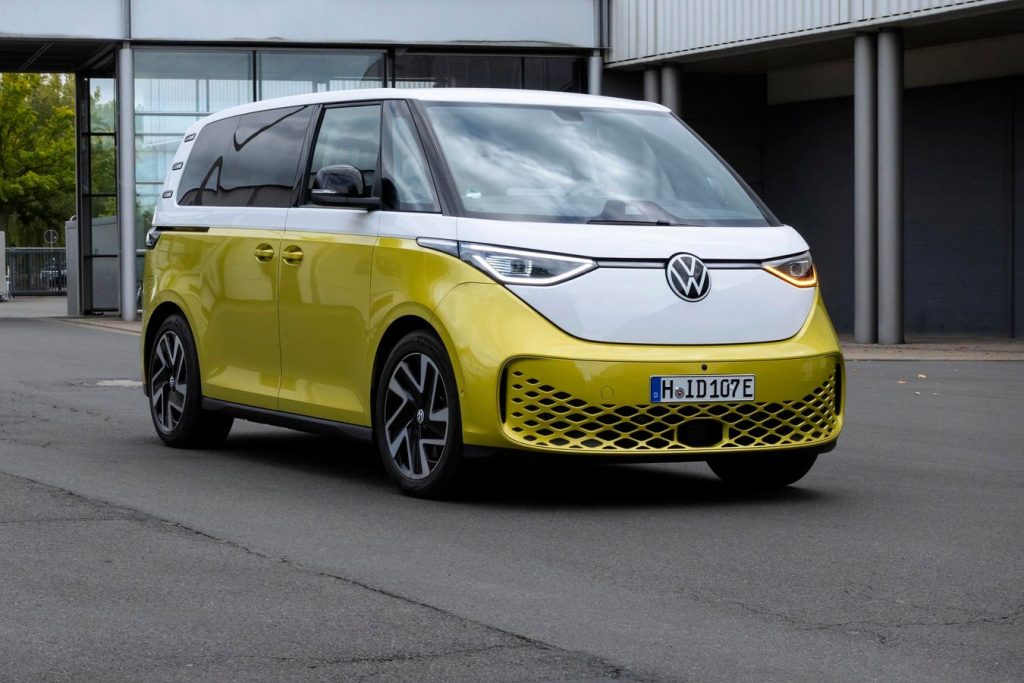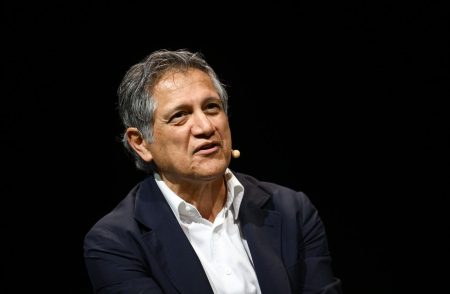Volkswagen has pleased investors with its belated attack on costs as it tries to rationalize its sprawling empire, but obstacles jeopardizing improved profits are growing.
Markets are weakening in Europe, getting more testing in China, electric vehicle sales are not performing as strongly as needed, while VW has a special problem; it is seen as the biggest laggard ahead of the strengthening of the EU’s anti-carbon dioxide rules next year and that will cost it much money.
Sales of sedans and SUVs in Europe are expected to slow to a growth of 4.6% in 2024 to 19.3 million, according to BMI, a Fitch Solutions company. In 2023, sales rose a robust 19.2%, as supply chain disruptions normalized allowing carmakers to catch up with a backlog.
“EU 2025 CO2 compliance could become a meaningful burden next year,” investment bank UBS said in a report after Volkswagen’s second- quarter financial report.
The regulations will require traditional automakers to sell a higher proportion of EVs. Given the weakness of EV demand, that suggests VW will have to subsidize their sales at the expense of profitable combustion sales.
According to UBS, this could remove about €2 billion ($2.2 billion) from VW’s 2025 profits and cut the operating margin to 6.2%.
VW plans 50 new models in 2024, half of which are EVs. This is across its wide range of brands including Audi, spun-off Porsche, Lamborghini and Bentley.
VW is in the middle of a €10 billion ($11 billion) cost-cutting program, with up to €4 billion expected this year.
VW’s operating profit fell 2.4% to €5.46 billion ($6 billion) in the second quarter compared with the same period last year. Operating margins slipped to 6.6% from 7%. Volkswagen’s core mass market business including its own VW brand, Skoda and SEAT fell to 5%. Audi has been hit by supply chain problems. VW cut its earnings guidance for 2024 in early July to the lower end of between 6.5 and 7.0%, down from 7.0 to 7.5%.
As part of its long-term plan to cut costs more to the level of its biggest competitor Toyota, VW has been slashing head count and closing plants.
“Such expensive measures will hurt profitability this year, but hopefully lead to a less bloated machine. Still (CEO Oliver) Blume’s ability to hit his targets may depend more on what looks like a difficult road ahead,” the Financial Times “Lex” column said.
Berenberg Bank of Germany expects VW’s current quarter to be difficult, before improving in the fourth quarter. The bank is positive on VW’s reform chances.
“If VW remains a complex turnaround story, the building blocks now seem well in place. The restructuring program is accelerating but gradual support to margins is yet to crystalize.” The bank said in a report.
According to Berenberg Bank, the building blocks include –
· The new EV platforms rolling out this year and next allow for more model/brand concentration, better products and production efficiency.
· Less vertical approach to software reducing development risks and allowing for better time-to-market and customer experience.
· Market share repair/defense in China which may take time, as operating results decline in 2024.
Despite describing VW as a slow-moving work in progress, investment researcher Jefferies likes what it saw. Jefferies said the second quarter was positive.
“(VW) is a rare improver in Autos with significant cost leverage and a sense of urgency and openness not often seen from VW management in the past. We continue to see value in VW’s efforts to rebuild earnings and rethink competitiveness during an industry transition that, in our view, is very much an open field,” Jefferies said in a report.
Investment researcher Bernstein is also wary of the impact of the EU’s 2025 CO2 rules.
“Despite its prodigious spending on EVs and multiple product launches to date, VW currently remains well short of the level of sales required to meet the looming 2025 CO2 cliff in Europe. So, selling more EVs is a priority but is hardly supportive to margins given high battery costs,” Bernstein said.
“VW’s commitment to tackling costs is clearly welcome although that begs the question of why have things been allowed to deteriorate to such an extent. One cannot help but feel there remains a chasm between intention and execution, not least when we look at its huge ongoing capital expenditure commitments,” Bernstein said.
VW’s 5-year rolling capital expenditure program from 2025 to 2029 has been trimmed by about 3% to €165 billion ($180 billion).
VW has been busy recently with various ventures designed to plug weaknesses. It agreed a deal with Rivian, a $5 billion agreement under which VW gains an electric vehicle operating system and the engineering required to operate it while Rivian gets cash and VW production know-how. VW and its battery subsidiary PowerCo agreed to make solid-state batteries developed with QuantumScape. VW earlier bought a 5% stake in Xpeng of China. They will make EVs initially for the China market.
Volkswagen has proven to be a dilemma for investors for decades. Its vehicles are competitive, but its finances and weak profitability reflect its political ownership. It is controlled by a 20-seat supervisory board where unions control half the votes and two politicians from the state of Lower Saxony who often vote with them. Investors have backed away from VW shares because this clunky management structure blocked attempts to turn VW into a normal corporation putting responsibility to shareholders ahead of unions.
Bernstein rates the shares “market-perform”, a lukewarm recommendation compared with say “buy” or “outperform” and doesn’t hold out much hope for VW normality.
“VW remains a treasure trove of brands whose values are almost completely stunted within the current group structure. Our, so far forlorn, hope of more active steps by management to realize their value inform our Market-Perform rating,” Bernstein said.
Read the full article here










